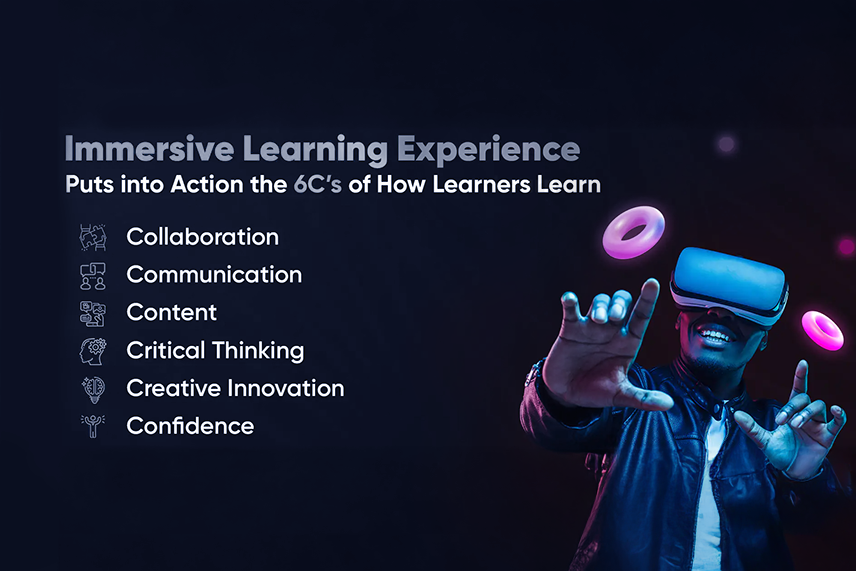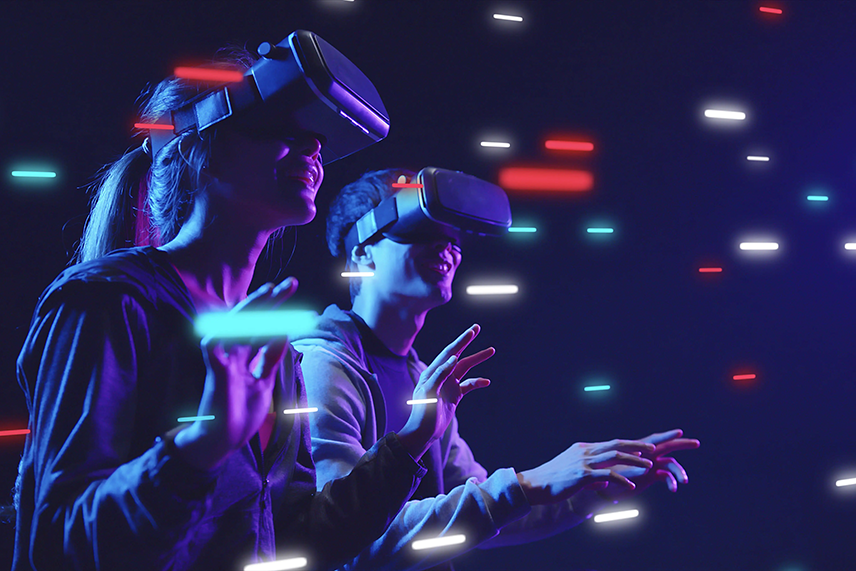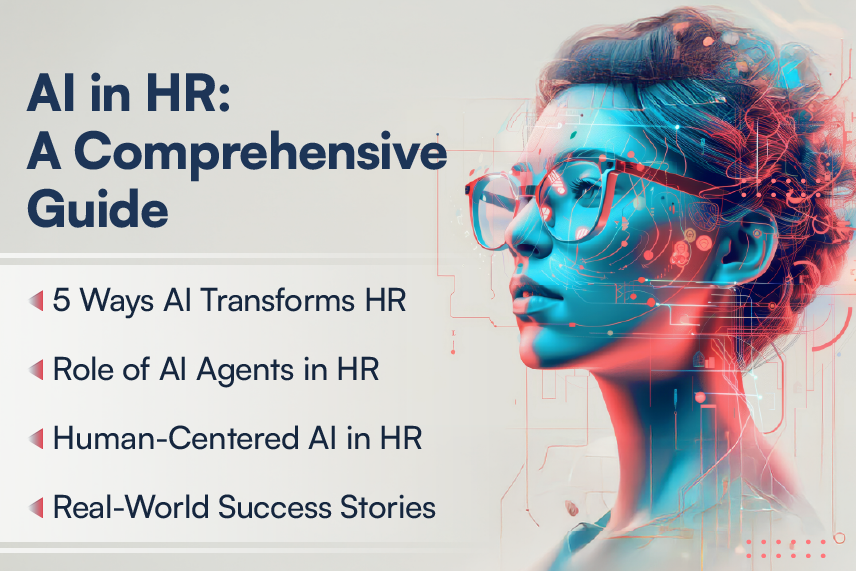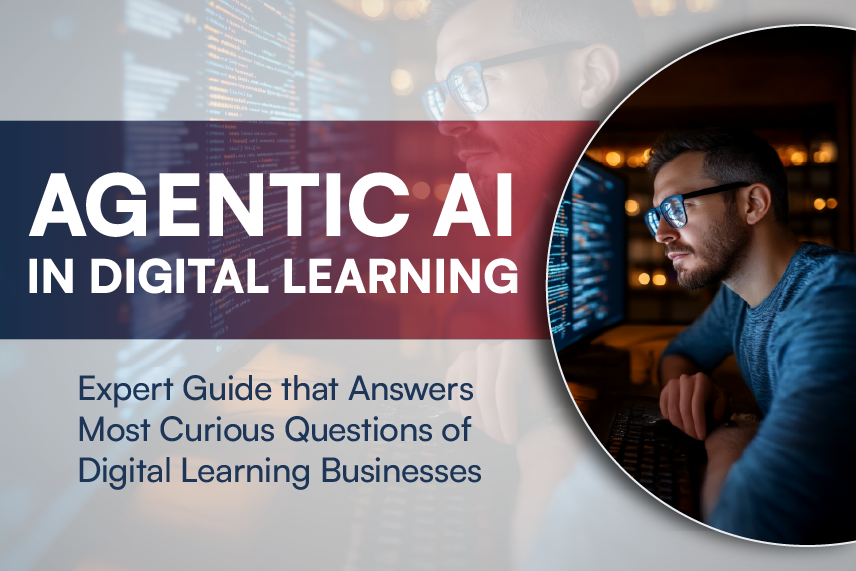‘Metaverse’ and the buzz around the word! You can’t deny the fact that in the year 2022 the metaverse made the most buzz and quite a headway in eLearning. Are you curious about the buzz and willing to dive deep into the world of the metaverse? Then, this blog post is for you!
Humans can’t imagine their lives without technology today. Moreover, the outbreak of the global COVID-19 pandemic has pushed the scale, implementation, and adoption of several emerging technologies, resulting in the digital revolution.
Several industries, including gaming, entertainment, FinTech, and even education, are making forays into the metaverse. They are using the metaverse to not just engage with their players or customers but also as an emerging technology for training, onboarding, and other aspects. Digital transformation is no more a luxury but has become a necessity to survive in today’s digital world.
Before understanding how the metaverse will transform digital education, let’s first answer the basic question.
What is the Metaverse?
The metaverse is defined as a network of 3D virtual worlds focused on a social connection. The digitally stimulated, interactive virtual world is facilitated using VR and AR headsets, also known as meta-quest devices. The VR/AR headsets have stereoscopic viewports that give a 360-degree or realistic3D experience, while hand-held controllers help one interact with the virtual environment. The metaverse is a rapidly evolving technology that is both immersive and synchronous.
A recent report by J.P. Morgan estimated the market opportunity for the metaverse at over $1 trillion in yearly revenues.
“According to Markets and Markets, the global metaverse market is expected to grow at 47.2% CAGR during the forecast period 2022-2027 and reach a $426.9 billion valuation by 2027.”
Metaverse: The Future of eLearning
The metaverse is already revolutionizing the areas of training and onboarding. With its engaging experience, we can reduce the time taken compared to traditional methods. Several studies have shown that learning through experience increases learning quality and improves retention.
Experts have predicted that the metaverse is likely to change the face of online learning. As eLearning evolves, we can expect it to become a far more digital experience. With the advent of the metaverse, there is an opportunity for the eLearning industry to elevate the learning experience further.

In conjunction with the traditional pen-paper syllabus, these learning materials are likely to herald big changes in L&D and education.
The metaverse can potentially enable students to virtually teleport to any place, at any time. So, with the help of meta-quest devices, a person’s metaverse avatar could visit ancient Rome, walk around the streets, visit the markets, and learn first-hand, albeit virtually, how people lived nearly 2000 years ago.
It could also help students enact real-life scenarios and learn with role-playing techniques. One great example could be in soft skills. For example, a mock meeting in the metaverse can be a good training ground to learn techniques to deal with bullying at the workplace.
Thus, the metaverse holds a lot of potential for learning and teaching, as it helps learners to visualize the textbook syllabus outside the classroom using VR. As a result, the metaverse undoubtedly makes learning both unforgettable and fun.
Let’s dive deeper in the different ways the metaverse positively impacts learning and education.
1. Bringing online environments to life
Virtual classrooms and campuses can be created as per learners’ needs and requirements. Further, they will be able to create their own avatars making the learning curve easy and flexible. Through the avatars, learners can visit libraries, sit in different lecture halls or classrooms, hang out with peers from different parts of the world.
Experts believe that such simulated environments that offer a range of digital experiences to learners will democratize the education sector. This enables the coming together of learners belonging to varied economic backgrounds from across the world.
2. Improving real-world skilling
Well-designed, curated content combined with spatial design and data science helps improve engagement. The immersive experience will help learners with the 6Cs – Collaboration, Communication, Content, Critical thinking, Creative innovation, and Confidence.
A metaverse avatar can learn various skills and tasks that could be further useful in real life. As a result, the learner has more freedom to learn and practice new skills without any fear of making mistakes or any related consequences.

3. Promoting interpersonal communication/interaction
Interpersonal communication or interaction is not easy in the online mode of learning. However, the metaverse allows virtual characters to interact. Thus, learners’ avatars on the metaverse will be able to not just socialize with their peers, but also study together, collaborate on projects, and connect with their teachers – all of which enhances the learning experience.
4. Enriching gamification
There are a lot of benefits to the gamification of learning. Apart from improving the problem-solving capabilities of learners, it is known to make learning fun and memorable. In the metaverse, gamification is taken to the next level. Lessons can be converted into game-based activities that will engage learners with realistic environment focused to increase their knowledge and skills, making learning both engaging and experiential.
5. Insights into the learner’s behavior
By creating immersive learning environments, content developers and organizations, like Meta, will get an insight into learners’ behavior. The data that they collect can be used to not just track learners’ progress, but also to identify gaps to improve upon the learning experience by developing more engaging content.

Embracing the Metaverse
The metaverse is an emerging technology that can become the next big thing. The technology is still in the nascent stage, though several sectors have started to exploit it. The metaverse holds the promise to be a game-changer in the eLearning sector, as it gives learners an immersive environment that is engaging and experiential. As eLearning evolves and embraces new technologies, the potential is limitless.
To learn more about how immersive learning experiences can enhance the quality of your eLearning, write to us now.






